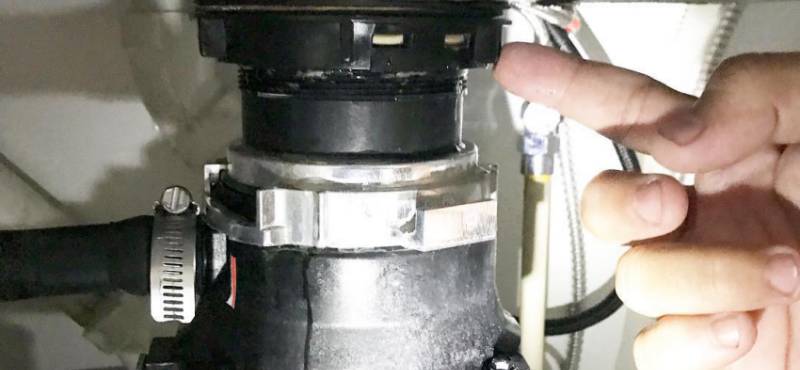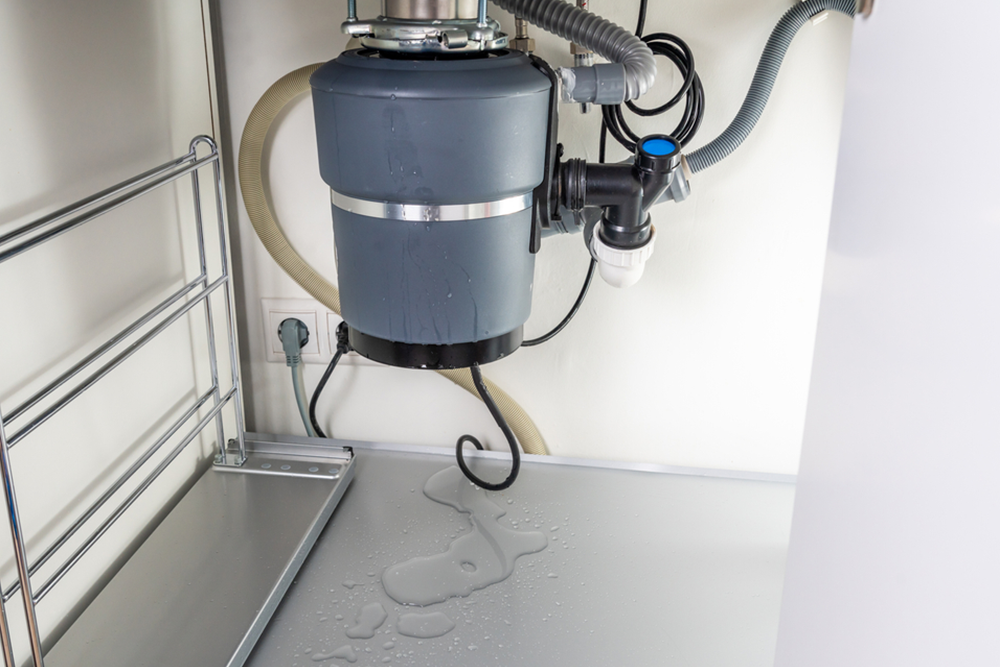Easy Steps to Stop a Leak in Your Garbage Disposal
Easy Steps to Stop a Leak in Your Garbage Disposal
Blog Article
The publisher is making a few good pointers relating to The Handy Guide To Fixing Your Garbage Disposal Leaking overall in this post in the next paragraphs.

Waste disposal unit are crucial kitchen area appliances that assist in getting rid of food waste efficiently. Nevertheless, a dripping garbage disposal can be a discouraging and untidy problem to handle. The good news is, numerous leaks can be dealt with conveniently with a few easy steps. In this post, we will certainly go over just how to deal with a dripping waste disposal unit effectively.
Intro
Waste disposal unit are installed under cooking area sinks and are made to shred food waste right into smaller sized items, permitting it to pass through the pipes system conveniently. While these devices are normally reliable, leakages can occur gradually due to wear and tear, loosened connections, or damages to the device.
Step-by-Step Guide to Dealing With a Dripping Waste Disposal Unit
Switch off the Power
Prior to trying any type of repairs, make certain that the power to the garbage disposal system is switched off to prevent the danger of electrical shock.
Situate the Leak
Determine the precise area of the leakage and identify the cause
Tighten Links
Make use of a wrench to tighten any loose connections between the disposal unit and the plumbing system.
Replace Seals or Gaskets
If the leak is because of worn seals or gaskets, remove the old components and replace them with brand-new ones.
Patching Splits or Openings
For fractures or holes in the disposal unit, usage epoxy or an ideal patching product to seal the broken location.
Determining the Source of the Leakage
Before trying to take care of a leaking waste disposal unit, it is vital to determine the resource of the leak. This can generally be done via visual examination or by carrying out straightforward examinations.
Visual Evaluation
Inspect the waste disposal unit unit very carefully for any kind of indications of water leak. Pay very close attention to locations around seals, gaskets, and link points.
Examining for Leakages
One way to check for leaks is by running water through the disposal system and looking for any visible indicators of leakage.
Common Reasons For Leakages in Rubbish Disposals
Worn Seals and Gaskets
Seals and gaskets play a vital duty in preventing water from leaking out of the garbage disposal. In time, these parts can weaken, bring about leakages around the disposal device.
Loose Connections
The connections between the garbage disposal and the pipes system can end up being loose over time, causing water to leakage out throughout procedure.
Fractures or Openings in the Disposal Unit
Physical damage to the waste disposal unit, such as cracks or openings in the housing, can also cause leakages.
Devices and Materials Needed for Fixing a Dripping Waste Disposal Unit
Prior to starting the fixing process, collect the needed tools and products, consisting of a screwdriver, adjustable wrench, plumbing's putty, replacement seals or gaskets, and epoxy or patching product for fixing fractures or openings.
Examining the Waste Disposal Unit After Repair
Once the repair is complete, evaluate the waste disposal unit by running water with it to make sure that the leak has been dealt with.
Preventive Maintenance Tips to Stay Clear Of Future Leakages
To prevent future leakages, it is vital to do regular upkeep on your waste disposal unit. This includes maintaining it clean, preventing placing non-food products or tough objects down the disposal, and occasionally checking for leaks or various other issues.
Verdict
In conclusion, repairing a dripping waste disposal unit is a relatively simple process that can be finished with standard devices and materials. By adhering to the steps outlined in this short article and exercising preventative upkeep, you can keep your waste disposal unit in good working condition and stay clear of costly repair services in the future.
HERE’S HOW TO FIX YOUR GARBAGE DISPOSAL
WHAT TO DO IF SOMETHING IS STUCK IN YOUR GARBAGE DISPOSAL
If the impeller won’t turn, there’s probably something stuck in the disposal. It could be a steak bone or peach pit, although plumbers report pulling all sorts of inappropriate objects out of disposals, such as bottle caps or aluminum foil. Make sure power to the disposal is off, and look inside to see if you can see the source of the jam.
Never stick your fingers in a disposal. Pull out anything you see with tongs or pliers.
If the disposal still won’t work, it may be time to call a plumber or consider buying a new disposal. GEM Plumbing & Heating is here for all of your garbage disposal needs.
WHAT TO DO IF YOUR GARBAGE DISPOSAL DRAIN IS CLOGGED
Take everything out from underneath your sink and put a bucket or other container under your disposal to catch any water that drains out. Disconnect your disposal from the power supply. If it’s plugged into a wall outlet, unplug it. If it’s hardwired into an electrical box, go to the electrical panel and turn off the breaker for the disposal. Pour ¼ cup of baking soda into the drain, followed by ½ cup of white vinegar. Give the solution a few minutes to fizz and do its work. Look into the disposal with a flashlight to see if you can see an object that might be causing the clog. If you see it, remove it using tongs or pliers. MORE TIPS ON DEALING WITH A CLOGGED GARBAGE DISPOSAL
Never use drain cleaner in a garbage disposal. It can damage the plastic parts inside the disposal. You can also be splashed with the caustic liquid while working to clear the clog. Beware! Never stick your fingers into a garbage disposal. Trust us — not a good idea. In many instances, your dishwasher drains through your garbage disposal. This allows the disposal to grind any large food particles that may be drained out of your dishwasher. There are some jurisdictions, however, where the plumbing code prohibits such a connection. WHAT TO DO WHEN YOUR DISHWASHER DRAINS THROUGH THE DISPOSAL
Run some water in the sink so your plunger has at least a ½-inch of water to create a seal and plunge vigorously up and down several times. You may need to repeat this several times. Run hot water down the drain to clear any residue that remains.

As an enthusiastic person who reads about Why Is My Garbage Disposal Leaking From the Bottom?, I was thinking sharing that excerpt was important. Sharing is caring. Helping others is fun. Thank you so much for going through it.
Click Here Report this page